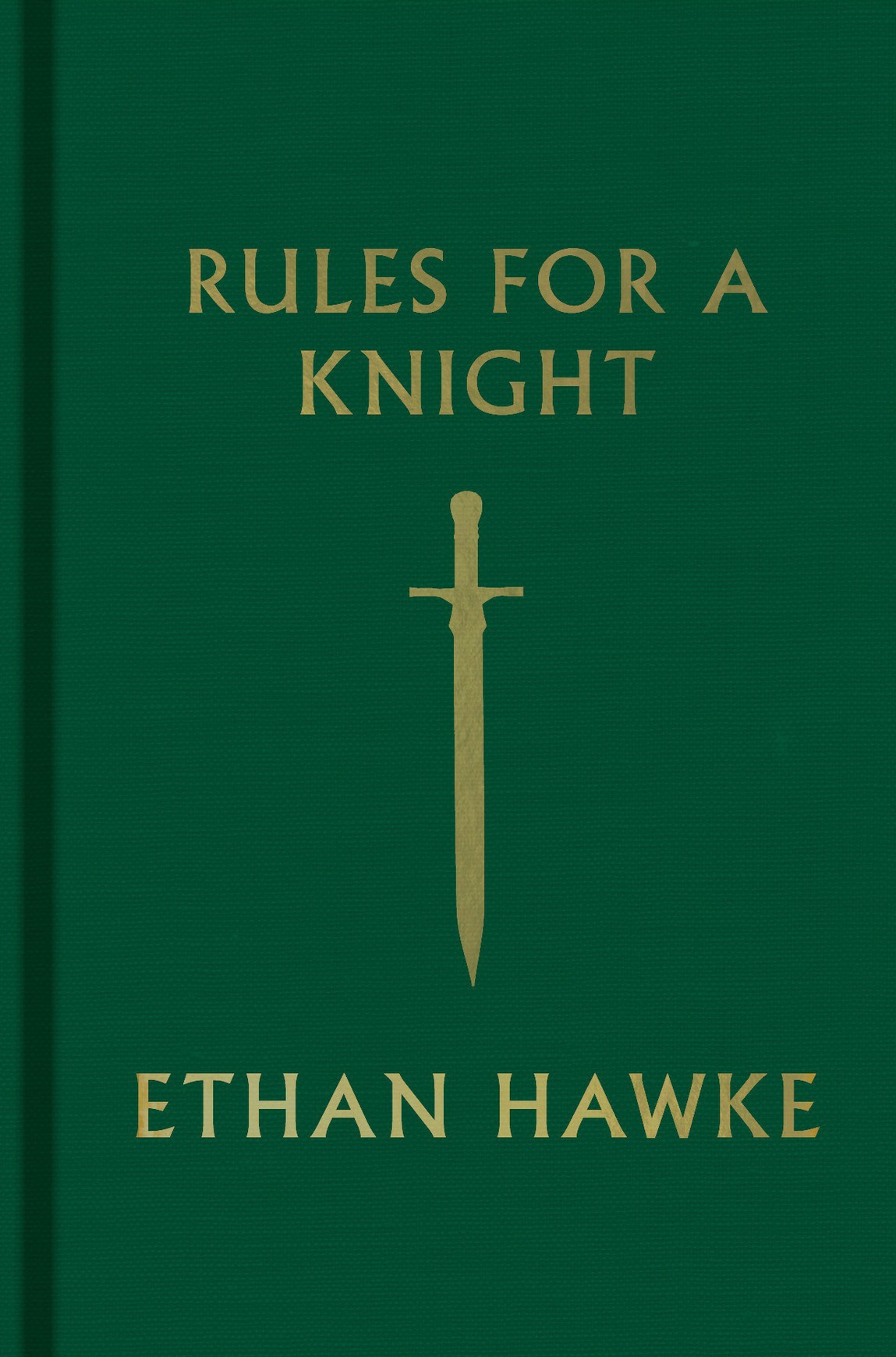
Rules for a Knight
فرمت کتاب
ebook
تاریخ انتشار
2015
Lexile Score
830
Reading Level
4-5
نویسنده
Ethan Hawkeشابک
9780307962348
کتاب های مرتبط
- اطلاعات
- نقد و بررسی
- دیدگاه کاربران
نقد و بررسی

September 14, 2015
Actor and author Hawke (Ash Wednesday) pens a heartwarming, medieval tale on ethics. Written in an epistolary form, Hawke writes from the perspective of his imagined ancestor Sir Thomas Lemuel Hawke, a knight who knows he is about to die in war. Sir Thomas teaches his children the 20 rules of knighthood, using examples from his own life to prove their validity. Each chapter begins with a drawing by Hawke’s wife, Ryan, and a short aphorism. Sir Thomas states that “luck is the residue of design” to explain the importance of dedication. To explain courage, he asserts that “anything that gives light must endure burning.” In addition to the more obvious notions one might instill in a child, Hawke touches upon subjects less-often addressed, such as speech, solitude, and death—“in silence we can sense eternity sleeping inside us.” Hawke’s joust against injustice and fear is an easy and endearing read, perfect for young and old children alike.

September 1, 2015
If you don't have a woeful countenance already, this knight's tale will slap one on you right quick. It's 1483, and down in Cornwall, a knight is writing a farewell to his children against the possibility that he may fall in battle in a war against the Thane of Cawdor. Not the one whose title King Macbeth usurped 400 years earlier, it would seem-though, given the anachronistic nature of this book, anything's possible. Take, for instance, a moment just a few pages in, when our seasoned and grown-up knight, settling into his yarn, recalls that the knight to whom he apprenticed as a young man began his tutelage with a nice cuppa. That's all very well and good, except that tea was unknown in the Middle Ages; a stickler will tell you that it first turns up a century and a half after the events actor/novelist Hawke (Ash Wednesday, 2002, etc.) recounts. That's either magical realism or sloppiness, both of which this latest effort abounds in. Take the nostrum that Good Sir Knight Senior imparts to Junior: "You are better than no one, and no one is better than you." All very nicely egalitarian, that, but a bit out of step with the elaborate hierarchy of medieval equerry and nobility. And more: "The simple joys are the great ones. Pleasure is not complicated." Tell it to Abelard and Heloise, oh Obi-Wan. Elsewhere Hawke merrily (and again anachronistically) stuffs in a well-known Buddhist tale, the punch line to which is, "I set that boy down hours ago, but I see you are still carrying him." Ah, well. By all appearances, Hawke aspires to write a modern Siddhartha, but what we wind up with is more along the lines of watered-down Mitch Albom-and that's a very weak cup of tea indeed. Just the thing for those who want their New Age nostrums wrapped in medieval kit.
COPYRIGHT(2015) Kirkus Reviews, ALL RIGHTS RESERVED.

October 15, 2015
Film star Hawke's first novel since Ash Wednesday (2003) is a meditative fable about fatherhood and honor as told by a Cornish knight. Preparing to march into a deadly battle, Sir Thomas Lemuel Hawke pens a letter to his four young children, imparting wisdom he obtained while under his grandfather's tutelage. Now presented as a family document that Ethan Hawke has pieced together, adapted, and reconstructed, the rules offer sage interpretations of 20 topics, including friendship, humility, honesty, courage, patience, discipline, and love. Regarding death, knights are unafraid, for the work one knight begins, others may finish. Each rule is illustrated and followed by object lessons. In Discipline, Thomas' Uncle Ferris offers local knights expensive gifts, which only Thomas and his grandfather decline, so he can build an indebted army for an unjust battle. In Forgiveness, Thomas chides his wife for aiding a petulant young ruler, but she notes that he unquestioningly assists their demanding children every day. Although it can be read in a sitting, Hawke's book of wisdom declaring life to be a gift should be pondered.(Reprinted with permission of Booklist, copyright 2015, American Library Association.)

November 1, 2015
On a summer's evening in 1483, before the bloody battle that would end his life, Sir Thomas Lemuel Hawke writes a letter to his four beloved children, offering guidelines to living an honorable life. This set of a knight's 20 rules were given to Sir Thomas by his grandfather while under his tutelage. Each principle is accompanied by random memories and musings from Sir Thomas to impart the lessons he learned to his family. Academy Award-nominated actor and author Hawke (The Hottest State; Ash Wednesday) wrote this little set of stories in part for his own children, and while the sentiment is sweet, the execution is poor. Numerous blatant historical inaccuracies are peppered throughout. Hawke shoehorns in various Western and Eastern philosophical concepts to try and make them fit, which frequently leads to a complete disconnect between the rule given and the supposedly supporting tale. VERDICT Hawke fans might be interested in obtaining, but this work is disappointing for readers of visionary or medieval tales. [See Prepub Alert, 6/1/15.]--Joy Gunn, Paseo Verde Lib., Henderson, NV
Copyright 2015 Library Journal, LLC Used with permission.

June 15, 2015
Hawke is a two-time Academy Award-nominated actor, good enough reason to call your attention to his new novel by giving it picks status, though his first two novels--The Hottest State and Ash Wednesday--did win respectable reviews. Begun as a letter Hawke wrote to his own children, this fantasist fable opens in 1483, as the Cornish knight Sir Thomas Lemuel Hawke prepares for a particularly ominous battle by penning a missive to his four children citing 20 virtues that will help them lead a noble life.
Copyright 2015 Library Journal, LLC Used with permission.

























دیدگاه کاربران